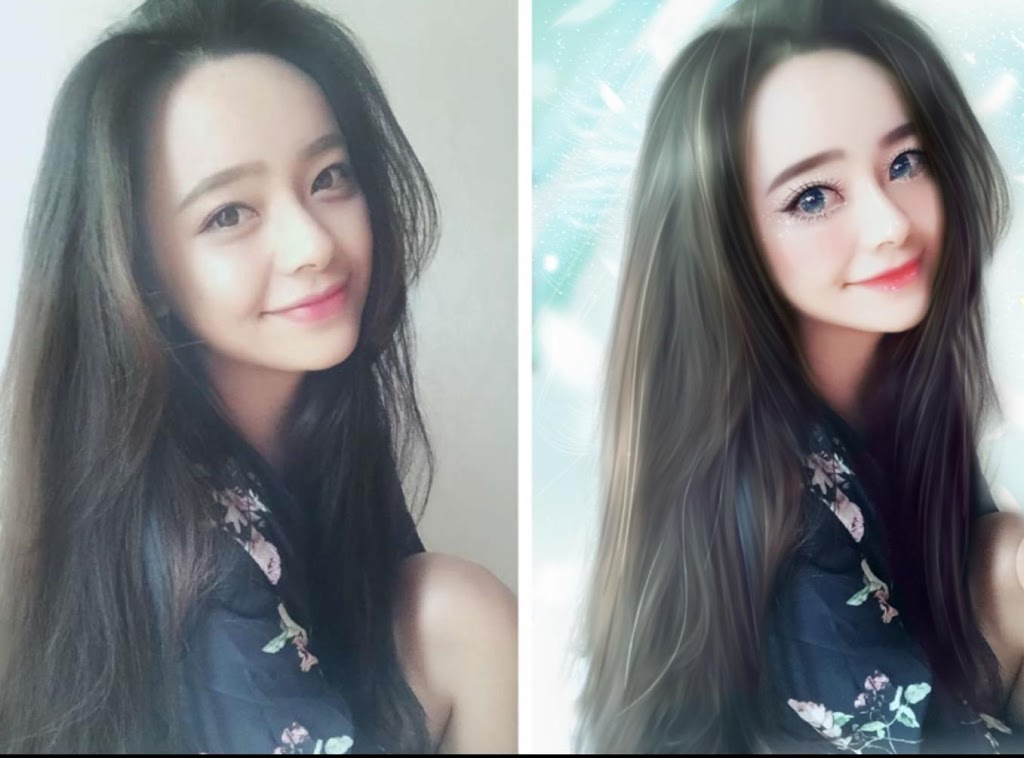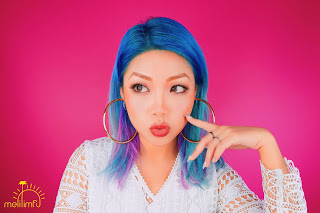“It is just the beginning of artificial intelligence applications in beauty,” warns Asmita Dubey, Chief Digital Officer Consumer Products Division at L’Oréal. She delivered a speech at the Mornings organized by ChinaConnect – new morning meetings during which Laure de Carayon, organizer and pioneering researcher, presents the latest digital innovation trends in China.
Since 2015, L’Oréal has been developing applications using facial recognition and virtual reality like Make Up Genius, Vice Lipstick (Urban Decay), and Style My Hair (L’Oréal Professionnel), to make it possible for users, via hundreds of functionalities, to view their faces with different makeup, lipstick, or hair styles, and then buy the products they liked the most. “These applications are highly successful around the world, in particular Style My Hair, which puts hairstylist and customer communities in contact and is present in dozens of countries, including China,” Asmita Dubey explains. The application also localizes the nearest hairdressing salons offering the type of treatments the users chose.
However, in China, it cannot compete with Meitu ( 美图, “beautiful image”), the popular photo processing application that brightens the skin, conceals blemishes, and widens the eyes in accordance with Chinese standards. “Meitu counts 270 million active users per month. In China, everything is in a larger scale,” Asmita Dubey reiterates. This success has triggered new initiatives by people eager to ride the wave of applications dedicated to virtual makeup, beauty tips, and skin diagnosis, like Tmall, Chinese conglomerate Alibaba’s e-commerce website specialized in lifestyle brands. These applications are supported by the mostly mobile use of digital devices in China, which counted 751 million web users in July 2017.
Laure de Carayon, organizer of the ChinaConnect Mornings and
Asmita Dubey, Chief Digital Officer Consumer Products Division at L’Oréal
Personalized recommendations
As far as vocal recognition is concerned, Chinese giant Baidu has developed Deep Speech 2, which turns the voice into textual data – an essential tool, “since we know 50% of all searches will be made orally in 2020,” Asmita Dubey says. “For cosmetics brands, the objective is to provide an oral, not written answer, and make the dialogue as fluid as a conversation. Many groups have been working on this and their results will soon be available on the market,” she announces.
An additional step towards purchase customization will then be completed, since artificial intelligence makes “recommendation” easier with the user data recorded. At the forefront of this technology, Tmall organized a Singles’ Day last November 11, which the Alibaba group managed to turn into a national shopping day in China – an operation called “1,000 faces, 1,000 pages”. The site provided product recommendations on a web page depending on the buyers’ profiles, tastes, and consumption habits.
“This recommendation function is still being enhanced by the xiaohongshu RED site (小红书, “little red book”),” Asmita Dubey continues. Depending on the type of products sought, this website presents the purchases of influential Chinese bloggers and their recommendations. Launched in 2014 as an application giving Chinese travelers the opportunity to rate and review the products they bought abroad, RED has added an ecommerce functionality – including mainly Asian cosmetics brands – as a result of its strong growth.
Data processing strategies
This huge quantity of collected data does not only concern final buyers, but also the information influencers on blogs and social media provide. “We often work with American company Tribe Dynamics, whose technology makes it possible to relate the content generated by influencers to the brands they talk about. If you take the example of Asian brand Tatcha, the analysis of what influencers say about it around the world can determine in which region and within which chains the brand will grow, to what extent it will grow, etc.”
The progress made in artificial intelligence is not only meant to make companies more profitable, Asmita Dubey claims: they can also involve a social commitment, as can be seen with application QQ Alerts, created by Tencent, another Chinese web giant that has been working on this technology. By giving a kid his future adult appearance on a picture, the application offers the possibility to find lost or abducted children.
However advanced they may seem, none of these applications has reached the ultimate goal of artificial intelligence yet: combine detection, reasoning, and optimization, as the technologies developed for designing self-driving cars do. “There is still a lot to do, including solving the problem of personal data and privacy protection,” emphasizes Amita Dubey. To her, in China, “the question has more to do with data security than privacy.”
This feature was commissionned and published by Premium Beauty News






